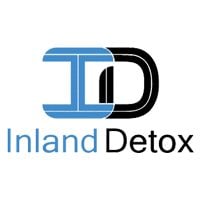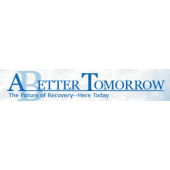Rancho Milagro Recovery
Drug Rehab Center in Temecula, California
Rancho Milagro Recovery is a licensed and accredited addiction treatment facility located in Temecula, California that offers comprehensive services including detoxification, partial-hospitalization, outpatient care, inpatient treatment and aftercare support - all while accepting private health insurance plans and working closely with patients and their families on their unique recovery journeys.
About This California Facility
Rancho Milagro Recovery, located in the lush Temecula Hills of Southern California, is a premier addiction treatment center that offers a comprehensive approach to recovery. With a focus on treating the whole person - mind, body, and spirit - Rancho Milagro provides a safe, loving atmosphere for individuals seeking to overcome drug and alcohol addiction. The facility has 16 beds and incorporates animal therapy into their treatment programs.
• Rancho Milagro Recovery offers a full range of services, including detox, partial hospitalization, outpatient, inpatient, and aftercare support, to address each client's unique needs.
• The center provides exceptional medical care, with a dedicated team of experts constantly monitoring each individual's physical and mental well-being.
• Rancho Milagro Recovery incorporates animal therapy, allowing clients and staff to interact with rescue animals such as cows, horses, and pigs, immersing clients in the Rancho Milagro life.
Accredited by LegitScript, JCAHO, and holding a State License, Rancho Milagro Recovery ensures that clients receive the highest quality care possible. These accreditations demonstrate the facility's commitment to providing professional, compassionate treatment that equips clients with the tools necessary to achieve their recovery goals.
At Rancho Milagro Recovery, individuals can receive treatment for a variety of substance abuse issues, including drug and alcohol addiction. The center offers gender-specific treatment options and utilizes a combination of medical and psychological therapies to help each client find lasting success in their recovery journey.
Genders
Ages
Modality
Additional
Accreditations
State License

LegitScript

JCAHO
Conditions and Issues Treated
People who abuse drugs are likely to suffer from an addiction, which can cause serious health problems. When it comes to helping drug abusers get sober, there are many options to choose from. It is essential to state that there is no “”correct”” way of doing things. People are different, and they need different types of help to get over their addiction.
Many people who struggle with opioid addiction need to attend specific programs like methadone , Suboxone or Vivitrol clinics.
These types of programs will provide the patient with legal, prescription medications that can help them overcome their cravings for illegal opioids like heroin or fentanyl . If the patient has a chronic condition like Hepatitis C, they must undergo treatment before they can begin taking these medications.
Dual Diagnosis refers to someone who is both dealing with addiction and another mental health issue.
There are different kinds of Dual Diagnosis: A person who simultaneously experiences both a mental illness and an addiction disorder. Or, a person who experiences one or more coexisting (simultaneous) mental health conditions in addition to a primary substance use disorder.
Some conditions that commonly co-occur with addiction include:
- Personality Disorders (Borderline, Narcissistic)
- Mood Disorders (Bipolar Disorder, Depression, Anxiety Disorder)
- PTSD (Post Traumatic Stress Disorder), OCD (Obsessive Compulsive Disorder), ADHD (Attention Deficit Hyperactivity Disorder)
- Schizophrenia, Psychosis, Hallucinations, Delusions
Levels of Care Offered at Rancho Milagro Recovery
This center offers a variety of custom treatment tailored to individual recovery. Currently available are Aftercare Support, Detox, Dual-Diagnosis, Inpatient, Outpatient, Partial-Hospitalization, with additional therapies available as listed below.
An addict may have to go through alcohol or drug withdrawal. While detox may be uncomfortable, it is not life-threatening. Detoxification allows the addict to rid the body of all traces of drugs or alcohol and gives the addict a clean slate for their recovery. In an inpatient or outpatient setting, detox can be managed medically.
Individuals who are suffering from severe addiction or have a high risk for dangerous health concerns are often recommended to receive inpatient treatment.
Choosing to enter an inpatient treatment program is beneficial for people who are suffering from severe addiction, or who have a high risk for dangerous health concerns.
Inpatient treatment is beneficial for:
- People who have a history of severe withdrawal.
- People who have attempted to overcome addiction on their own without success.
- People who have a history of relapse, or have recently relapsed.
- People at risk for drug overdose or withdrawal-related complications.
- People with medical conditions that are worsened by drug or alcohol use.
Outpatient treatment programs provide drug and alcohol addiction treatment through individual sessions with a counselor, group therapy, 12-step meetings, and other activities to help individuals gain sober living skills. Most programs are designed for those individuals who have completed a medically supervised detoxification program and provide opportunities for clients to begin the process of early recovery.
Outpatient programs also offer a level of medical support as needed and psychological backing through therapy. Clients are encouraged to live at home, though there may be some flexibility regarding this requirement based on the circumstances and needs of each patient.
Outpatient treatment is perhaps the most common type of dual diagnosis program available. It does not pose a significant financial burden on patients. However, it is essential to note that outpatient treatment does not provide the support and supervision given in residential programs. Some addicts may need this level of support to maintain their sobriety.
Partial Hospitalization Program, or PHP, is a type of drug addiction rehabilitation in the patient’s home. Patients often have to come into Rancho Milagro Recovery for treatment on weekday evenings and weekends. They must also attend an intensive outpatient program at least 9 hours per week while attending PHP. The patient will meet with a counselor or therapist to help them work through their addiction issues. This type of treatment is used for patients who can go out among society but are at risk of relapsing due to continued exposure to drugs or alcohol.
People who have completed a rehab program often need continued support from the addiction treatment team in order to remain abstinent from drugs and alcohol. Aftercare can be beneficial for personal, social, and emotional growth.
Common aftercare options include:
- Individual Therapy – this type of addiction counseling is available on a one-on-one basis. This can be beneficial for people with a high degree of emotional turmoil and a strong desire to overcome addiction.
- Group Therapy – this type of addiction counseling is available in a group setting. This type of treatment can be beneficial for people who are unable to attend regular therapy appointments due to other responsibilities.
- Family Therapy – this type of addiction counseling is available to the family members of addicts. This can be beneficial for people who are unable to fully comprehend what their loved ones are experiencing due to addiction.
Therapies & Programs
Therapy sessions focused on the individual addict can provide much-needed guidance as they work toward overcoming their addiction. These types of sessions typically involve guidance from a therapist, who will help addicts identify and process their feelings and cravings.
During these sessions, addicts may develop plans for coping with the triggers that typically lead to relapse and learn how to avoid those triggers during their recovery process.
Different types of addiction treatment services are available. Within this article, group therapy is of interest due to its high success rate compared to individual therapy. Group therapy settings are beneficial because they allow recovering addicts to build a strong support network.
Benefits of group therapy are:
- Reduces feelings of isolation
- Immediate access to social support in the form of fellow addicts in recovery
- Lowers risk of relapse
- Increases rate of sobriety
- Builds coping skills that can be applied to everyday life
The 12 steps of AA and other anonymous programs (generally abbreviated to ’12-step program’ or ’12-step’) are a series of guiding principles outlining a course of action for recovery from addiction, compulsion, or other behavioral problems. Originally proposed by Alcoholics Anonymous (AA) as a recovery method from alcoholism, the Twelve Steps were first published in the 1939 book Twelve Steps and Twelve Traditions. The program was adapted and became part of the philosophy of other 12-step programs.
12-Step programs are widely regarded as effective for dealing with substance abuse issues, but some critics believe they can be difficult to understand or follow. There is also evidence that the 12 steps may not be effective for adolescents with substance abuse issues. At least one study has shown that 12-step programs are not more effective than other forms of treatment.
Despite these claims, there is substantial evidence that people who attend 12-step meetings have a greater likelihood of achieving long-term abstinence and sobriety than those who do not participate in 12-step meetings.
Patient Experience
Experiential Therapy at Rancho Milagro Recovery
Experiential therapy is a form of psychotherapy where patients are asked to engage in activities such as role-play, poetry writing, music composition, exercising, or journaling to help process intense feelings. The aim of the therapy is to help patients access deeper, often hidden emotions by helping them explore their own body and mind.
Equine Therapy at Rancho Milagro Recovery
Equine therapy, also known as horse therapy, involves working with horses to achieve physical, mental, emotional, and social goals. Horse therapy dates back to the late 1940s, when children who were survivors of concentration camps during WWII worked with horses to help them deal with their trauma. Soon after, equine therapy was developed in America for children with disabilities. This practice has since evolved to incorporate various types of equine activities for people with a wide variety of special needs. This includes individuals suffering from mental health disorders, drug and alcohol addiction issues.
Horses are large creatures that are typically seen as intimidating by humans. However, they are very gentle animals that do not attack unless provoked. They are also herding animals that seek out the company of others. Horses are affectionate creatures that interact with one another in various ways — nuzzling, licking, and grooming. These distinct behaviors can help humans overcome desensitization and build trust with themselves and others when they are gradually introduced to horses through equine therapy.
Payment Options Accepted
For specific insurance or payment methods please contact us.
Is your insurance accepted?
Ask an expert, call (888) 674-0062
Additional Details
Specifics, location, and helpful extra information.
Temecula, California 92592 Phone Number(951) 430-0001 Meta DetailsUpdated April 15, 2024
Staff Verified
Is Rancho Milagro Recovery a LegitScript Verified Treatment Facility?
According to our most recent records, we have found this center to be LegitScript verified.
Patient Reviews
There are no reviews yet. Be the first one to write one.
Temecula, California Addiction Information
More than 3 million of California's citizens are addicted to illegal drugs. Almost 800,000 people use hard drugs, almost 5 million use marijuana, and another 2.1 million abuse alcohol every year. Other substance abuse issues such as binge drinking and teen drug use are also common. Many illegal drugs such as cocaine, heroin, methamphetamine, and marijuana are smuggled into the state from Mexico.
Treatment in Nearby Cities
- Pomona, CA (56.0 mi.)
- Fremont, CA (394.0 mi.)
- Upland, CA (53.3 mi.)
- Cerritos, CA (66.5 mi.)
- Fair Oaks, CA (424.9 mi.)
Centers near Rancho Milagro Recovery
The facility name, logo and brand are the property and registered trademarks of Rancho Milagro Recovery, and are being used for identification and informational purposes only. Use of these names, logos and brands shall not imply endorsement. RehabNow.org is not affiliated with or sponsored by Rancho Milagro Recovery.







